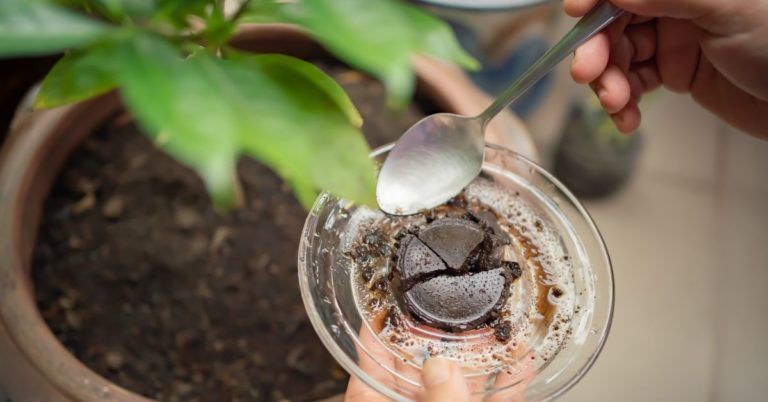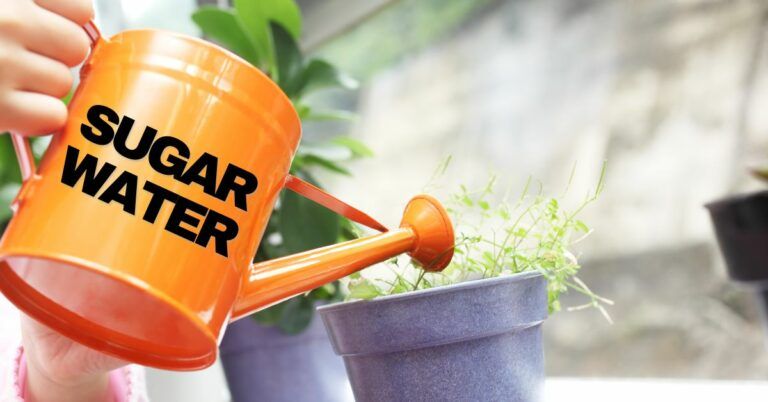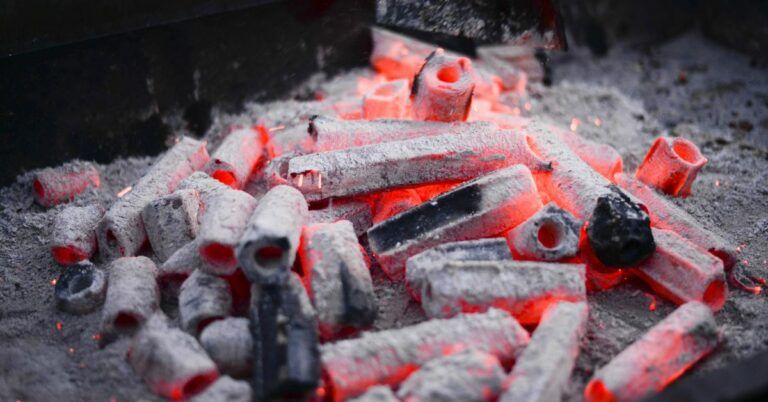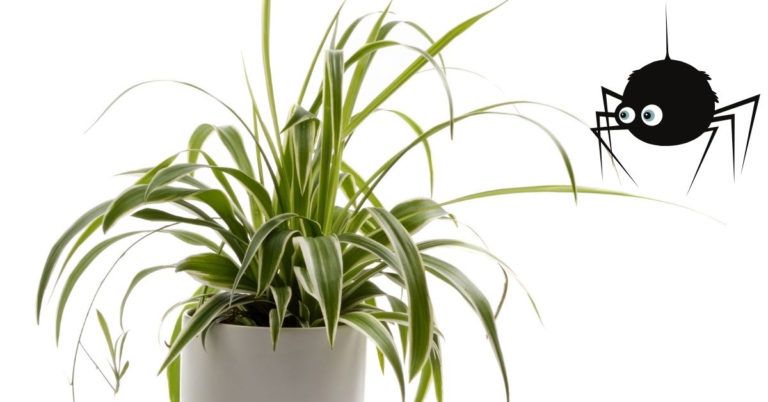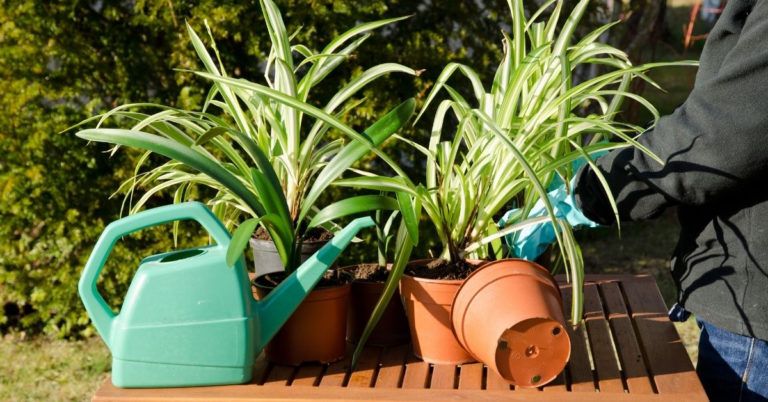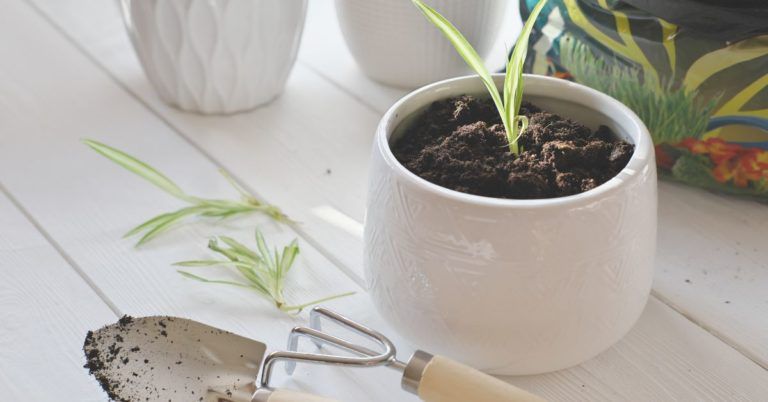Are Eggshells Good for Plants? (Explained)
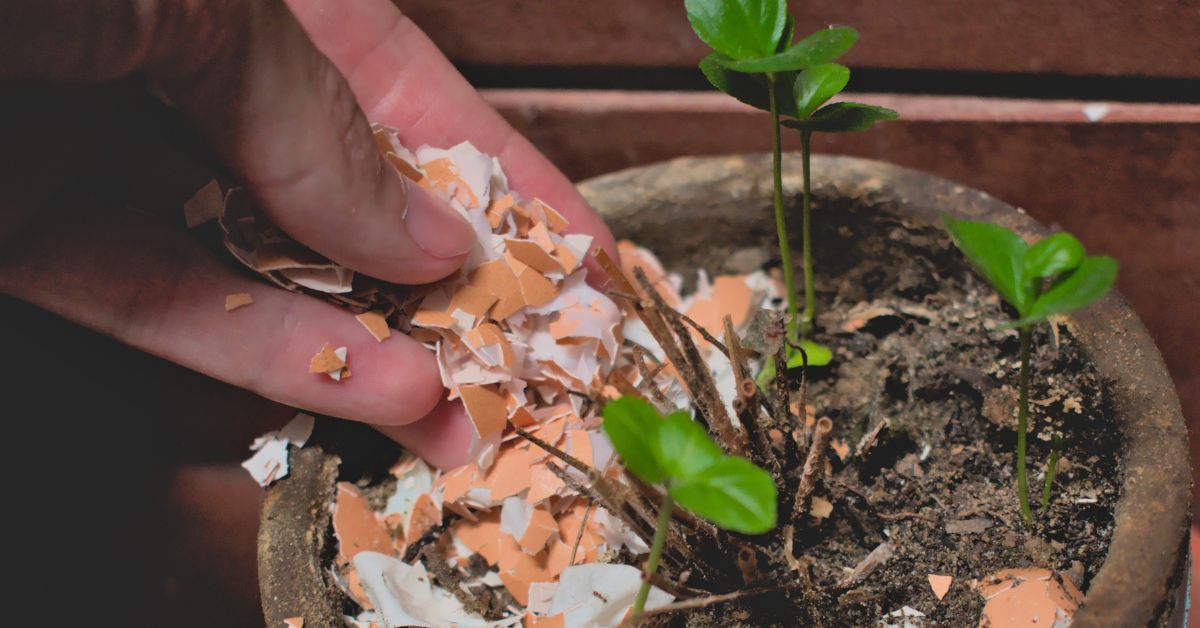
Do you know what eggshells are?
Eggshells are the shells of chicken, duck, or bird eggs.
Are eggshells good for plants?
Yes, they are! Eggshells contain calcium, an essential mineral in bones.
But what are their benefits to plants?
Keep reading to find out, as the results may surprise you!
Is it good to put crushed eggshells in plants?
Yes, it is good to put crushed eggshells in plants!
There are many benefits to putting eggshells in your plant’s soil.
Mixing eggshells into plant soil decreases soil pH levels.
Lower pH levels mean the soil is less acidic and more alkaline.
Therefore, plants that prefer alkaline soil will benefit significantly from eggshells.
As said earlier, eggshells contain calcium.
Some plants do need calcium to stay healthy.
An example of this are tomato plants.
Without enough calcium in the soil, they will experience blossom end rot.
Blossom end rot is when the bottom end of the fruit rots.
This happens when the plant lacks calcium.
So, eggshells are a great way to prevent your tomato plant from producing rotten fruits.
Another benefit of eggshells in plants is pest control.
Crushed eggshells will often have sharp ends.
These sharp ends are effective at preventing pests from reaching your plant.
Pest insects walking on these sharp eggshells will tear their abdomens, killing them.
Slugs and snails trying to move over them will cut and injure themselves badly.
Therefore, eggshells significantly reduce plants’ chances of getting pests and diseases.
Eggshells are also great for promoting root growth.
The calcium and minerals in these eggshells also help toughen your plant’s roots.
They help root cells grow stronger, which in turn helps them grow more effectively.
Now that you know how good eggshells are for plants, let’s prepare them!
Also read: Are Coffee Grounds Good for Houseplants? (Explained)
How do you prepare eggshells for plants?
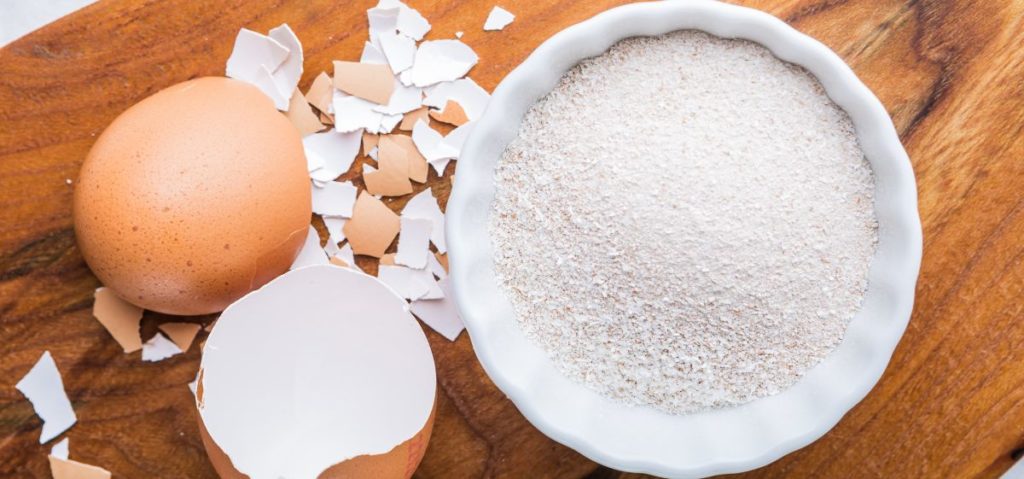
There are various methods for preparing eggshells for your plant’s soil.
The most straightforward way is to simply crush the eggshells with your hands.
However, the eggshells won’t be fine enough to be adequately mixed with the soil.
Your plants do benefit from having sharp eggshells to deter pests, though.
Another method is to use a mortar and pestle to crush your eggshells into finer bits.
It won’t be a fine powder, but it will make for a more effective fertilizer than hand-crushed shells.
The last and most effective method is to use a blender.
With a blender, you can turn your eggshells into a fine powder.
By turning your eggshells into a fine powder, they mix into the soil more effectively.
Your plants can readily take advantage of that fine mixture compared to hand-crushed ones.
After making your eggshells, till them into the soil.
Keep tilling until the blend of soil and eggshells is even.
For the best results, hand-crush your eggshells for pest deterrent and use fine ground eggshells as fertilizer.
Therefore, you can get a plant that benefits directly from the minerals in eggshells while also being protected from pests.
But now you may wonder how often you should mix eggshells into the soil.
How many eggshells is too much?
Is there a limit before it becomes harmful?
Read more to find out!
How often should you put eggshells in your garden?
For the most part, there is no limit to how many eggshells you can put in your plant’s soil.
One situation where this might be a problem is with plants that are sensitive to pH changes.
The calcium in the eggshells reacts with the acid in the soil, neutralizing it.
This can impact plants that require acidic soil.
Some of these plants include sweet potatoes and blueberries.
After your initial till, you must wait at least two weeks before adding more eggshells.
As eggshells decompose, they slowly release their minerals into the soil.
On average, eggshells take more than three years to fully decompose.
However, under specific conditions, they can degrade faster.
One example is by putting the eggshells in acidic soil.
The calcium in the eggshells will react with the acid, turning the shells into minerals that can be easily absorbed by the soil.
Eggshells are also known to decompose pretty well in compost.
Bacteria in the compost help the eggshells degrade faster.
Grinding the eggshells into fine powder also helps shorten its decomposition time.
Conclusion
Eggshells have many uses, ranging from bird feed to homemade chalk.
As it turns out, eggshells are great as plant fertilizer.
Eggshells also encourage root growth by helping the roots grow stronger.
For the best results, grind your eggshells into a fine powder, as your plants can absorb them more efficiently.
Best of all, eggshells protect your plants against pests, making them an excellent fertilizer and pest controller at the same time.
Now, I’d love to hear about your experience with eggshells and plants.
Have you ever used eggshells on your plants? How does eggshell affect a plant in your home?
Let us know by commenting down below.
If you’re new to caring for houseplants, don’t forget to read our houseplant care guide for beginners.
Until then, happy gardening!
